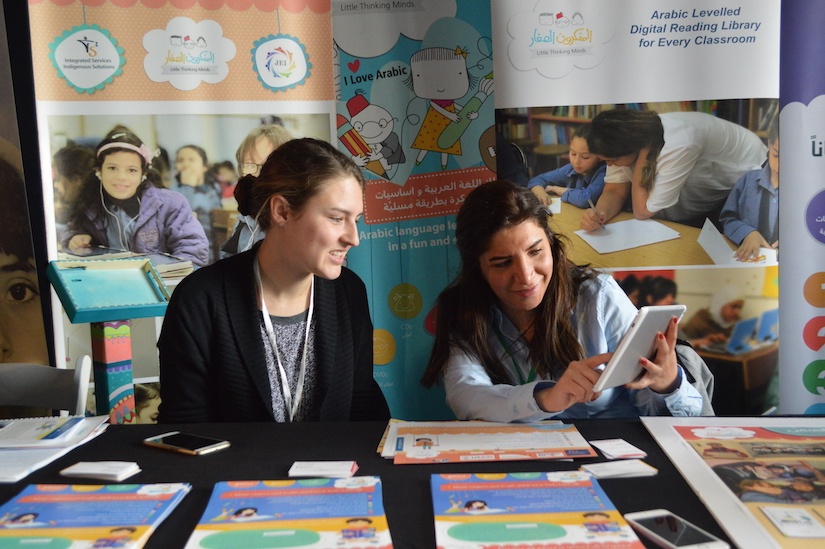Edtech gives hope to a generation without schooling

Over 200 people gathered last week in Amman with a goal of digitalizing education to better reach the 750,000 Syrian refugee children out of school.
“The opportunities we see in technology include accessibility, mobility, and record keeping,” said Mark Chapple, the head of No Lost Generation (NLG) Edtech Summit, which brought together representatives of international aid groups, private sector companies, and startups. NLG is a consortium of aid agencies, including the UN, World Vision and Mercy Corps, that focus on child protection, education and adolescents, and youth.
The summit, the first of its kind, is part of the NLG initiative established in 2013 to serve Syrian refugee children in five neighboring host countries: Jordan, Lebanon, Turkey, Iraq and Egypt.
The private sector as a key player
Unlike in many other previous conflicts around the world, tech giants sich as Facebook, Google and Cisco, are lending a hand in facilitating projects that aid refugees.
Aape Pohjavirta, the founder of Funzi, a free educational mobile app that has partnered with Facebook, believes that private sector involvement is necessary to diversify the solutions for the refugee crisis. Speed and risk-taking, two characteristics of startups, should also be adopted by businesses to boost the efficiency of the lagging aid response.

Collaboration between the public and private sector, including individuals and young startups, was a common theme that reverberated throughout the event.
Examples of successful collaboration between the two sectors were displayed in an exhibition that included Little Thinking Mind's work with the Jordanian government to produce digital Arabic content for public schools, and Tabshoura’s collaboration with World Vision to provide digitized versions of kindergarten curricula for Syrian refugees living in Lebanon.

Sebastian de Quant from Startup Boat, an incubator focused on supporting innovation relating to humanitarian aid, said the role of the public sector was crucial to finding solutions for refugee crises, but at the same time, startups could fill the vacuum where governments and NGOs failed.
“Large organization are constrained by bureaucratic criteria; what a startup can do in this case is provide innovative, targeted ground up solutions on a micro level,” de Quant said.
As part of the event, startups and entrepreneurs developed action plans and pitched their ideas to Startup Boat, along with four other organizations who promised a collective grant of $236,000 as seed funding to six edtech solutions. Fifteen proposals were selected to proceed with the competition which will be taking place in upcoming months.
Feature image via NLG.


